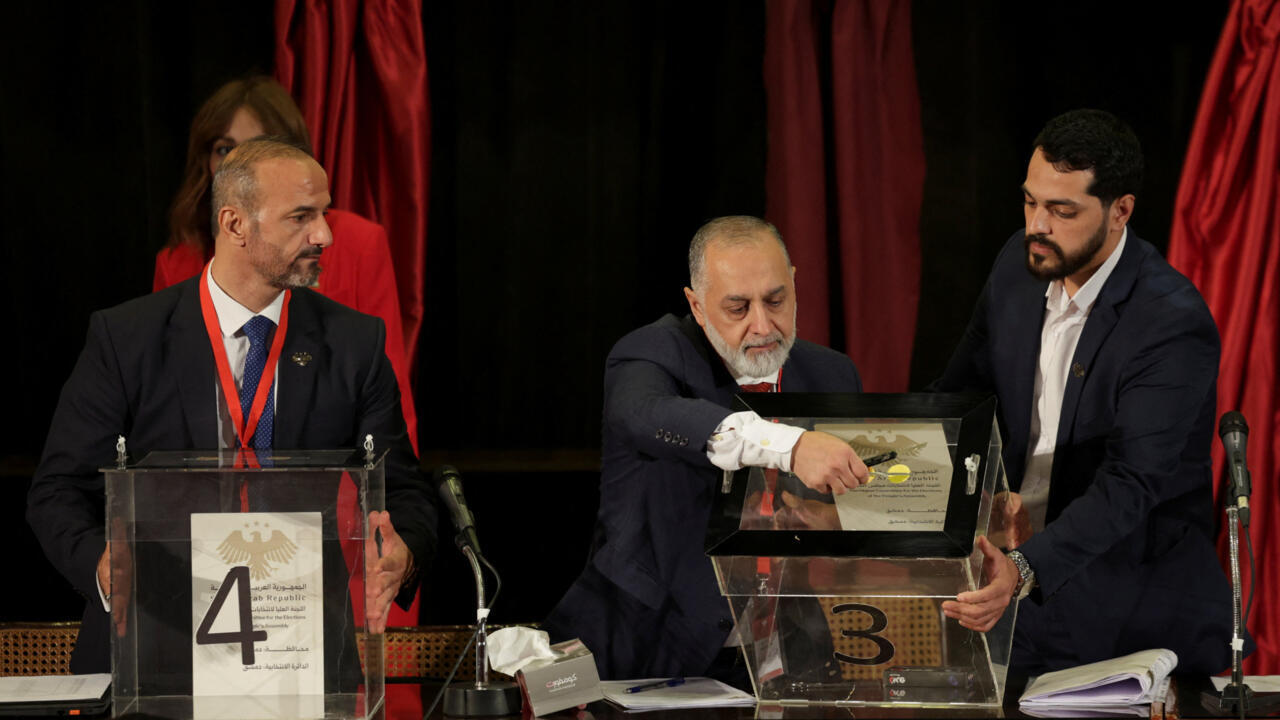French President Emmanuel Macron on Friday named Sébastien Lecornu as prime minister, reappointing him after he quit the job earlier this week, hoping the loyalist can draw enough support from deeply divided parliament to pass a 2026 budget.
In naming Lecornu, Macron, 47, risks the wrath of his political rivals, who have argued that the best way out of the country's deepest political crisis in decades was for Macron to either hold snap parliamentary elections or resign.
Read moreLive: Macron reappoints outgoing premier Sébastien Lecornu as French prime minister
Lecornu's immediate task will be to deliver a budget to parliament by the end of Monday.
"I accept – out of duty – the mission entrusted to me by the President of the Republic to do everything possible to provide France with a budget by the end of the year and to address the daily life issues of our fellow citizens," Lecornu wrote on X.
"We must put an end to this political crisis that exasperates the French people and to this instability that is harmful to France's image and its interests."
Leftists upset
Macron earlier convened a meeting of mainstream party leaders to rally support around his choice. Leftist leaders expressed dismay Macron would not be picking a prime minister from their ranks, their indignant response suggesting his future government might be as fragile as those that preceded it.
Another collapsed government would raise the likelihood of Macron calling a snap election, a scenario seen benefitting the far right the most.
"We're not looking for parliament to be dissolved, but nor are we afraid," Socialist Party leader Olivier Faure told reporters as he left the meeting.
Crisis saps economic growth
France's political turmoil, which has dented growth and spooked financial markets, was in large part triggered by Macron's decision last year to hold a legislative election, a gamble that delivered a hung parliament split between three ideologically opposed blocs.
The country's push to get its finances in order, requiring budget cuts or tax hikes that no party can agree on, has only deepened the malaise. So, too, has manoeuvring by political leaders seeking to succeed Macron in the 2027 presidential election.
Read more‘Zucman tax’: Push to tax the super-rich could make or break France’s next government
If the National Assembly cannot find common ground on a budget in the time given, emergency legislation may be needed to keep the country running next year on a roll-over budget. Macron shut out Marine Le Pen's far-right National Rally (RN) and the left-wing France Unbowed (LFI) from the meeting of party chiefs.
RN president Jordan Bardella said following Lecornu's reappointment that the party would immediately seek to vote the new government out of office.
Labelling the move by an "isolated and disconnected" President Emmanuel Macron to reappoint Lecornu a "bad joke", Bardella said his party will "immediately of course censure this coalition which does not have any future" through a no-confidence motion in parliament.
Race to deliver budget
The country's central bank chief, Francois Villeroy de Galhau, forecast on Friday that the current political uncertainty would cost the economy 0.2 percentage points of gross domestic product. Business sentiment was suffering but the economy was broadly fine, he said.
"Uncertainty is ... the number one enemy of growth," Villeroy told RTL radio.
Fraught budget negotiations this year and last as France seeks to rein in its public finances and tame a gaping budget deficit have cost Macron three prime ministers in less than 12 months.
Central to the most recent budget negotiations have been the left's desire to repeal Macron's 2023 pension reforms that lifted the retirement age, and tax the wealthy more heavily. Those demands have been hard to square with the conservatives, whose support Macron also needs to pass a budget.
In the meeting, Macron offered to delay raising the retirement age as far as 64 by a year to 2028. Green Party leader Marine Tondelier described the concession as insufficient.
Villeroy said it would be preferable if the deficit did not exceed 4.8 percent of GDP in 2026. The deficit is forecast to hit 5.4 percent this year, nearly double the European Union's cap.
Macron's second-to-last prime minister, François Bayrou, was ousted by the National Assembly over his plans for 44 billion euros in savings to bring the deficit down to 4.6 percent of GDP.
(FRANCE 24 with Reuters and AFP)











 English (US) ·
English (US) ·